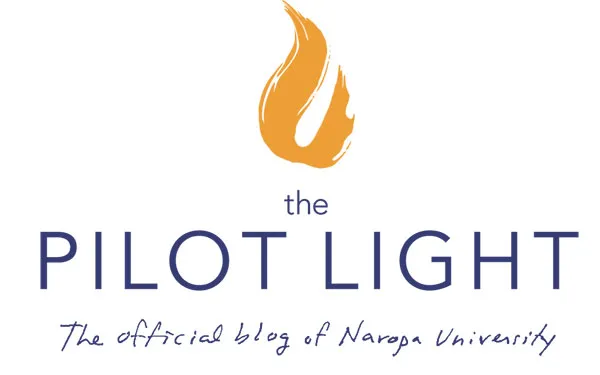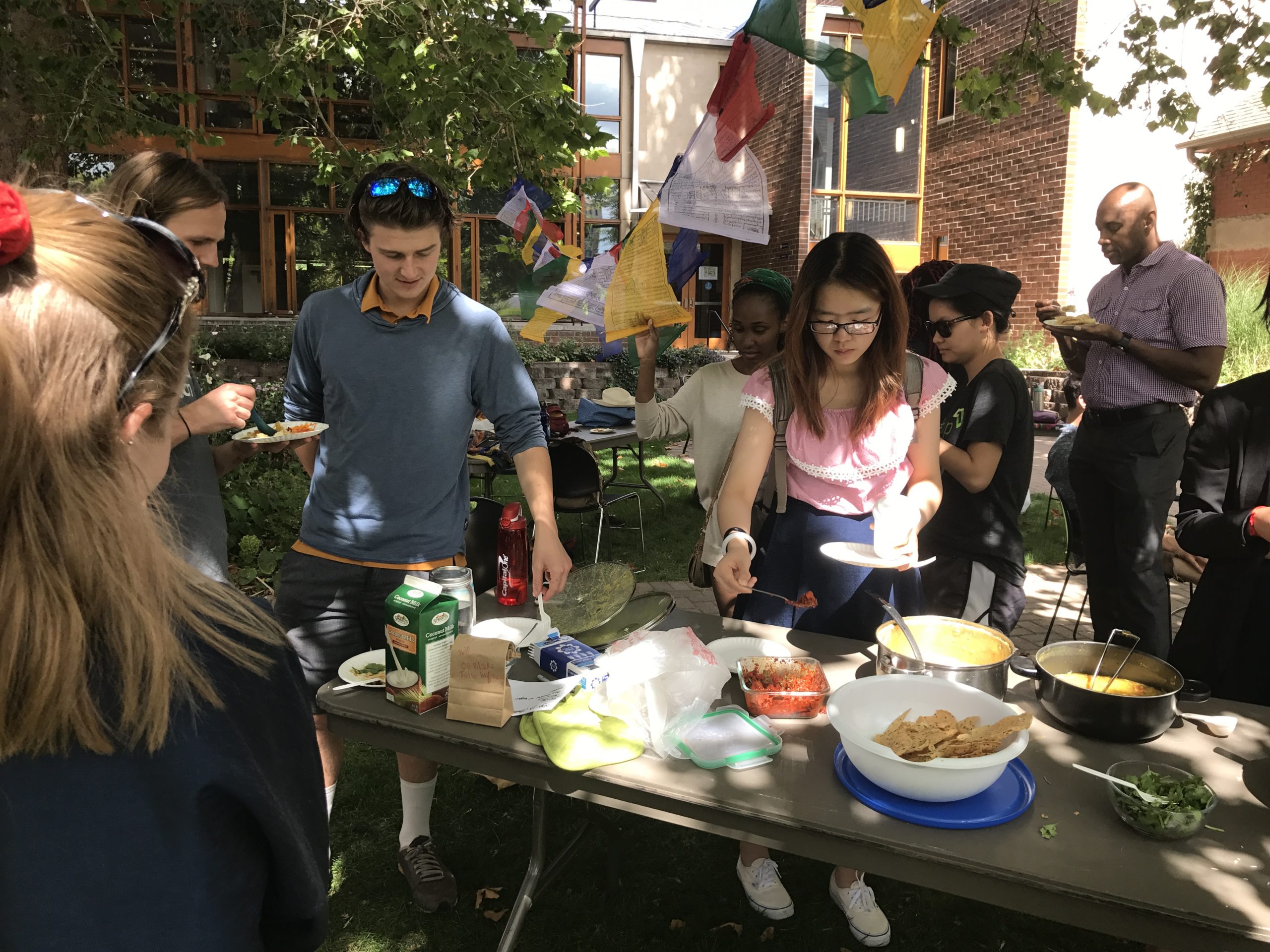
By Anne Parker, PhD, Environmental Studies Professor
What a party!
Prayer flags flying, spicy dhal simmering…Naropa alumni from the last two years of the study abroad program in Himalaya country of Bhutan met out on the Arapahoe campus green with interested students and others who are keen to learn more about the program. It felt like a little bite of Bhutan – conversation over tea and food, affectionately tying people into the traditional clothing, storytelling, and simply abandoning western time to hang out together in the middle of the Naropa green and the middle of a busy American day to talk and talk!
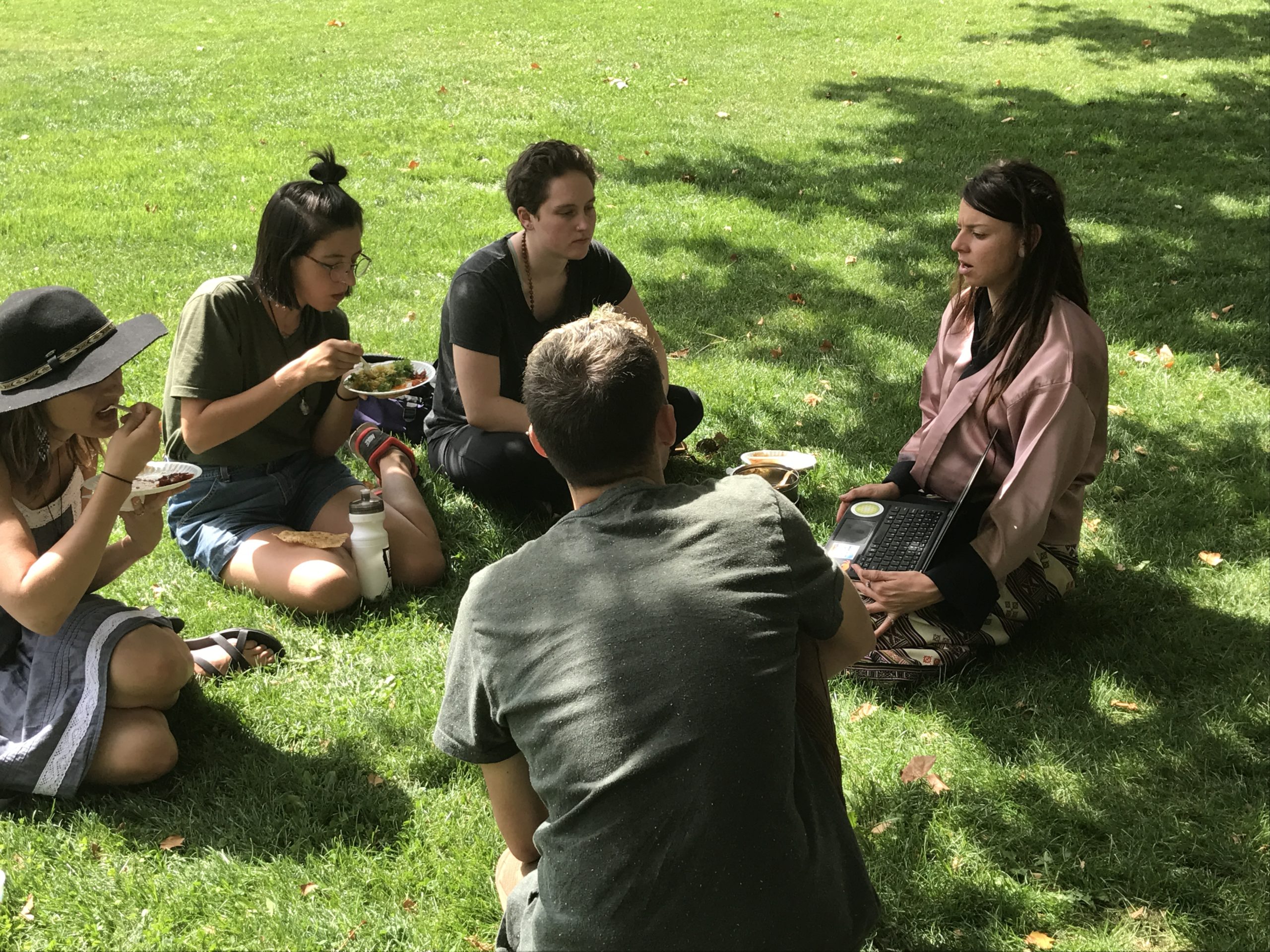
Bhutan is located in the Eastern Himalayas and is bordered by China’s Tibet Autonomous Region in the north, India in the south, the Sikkim state of India and the Chumbi Valley of China’s Tibet in the west, and Arunachal Pradesh state of India in the east.
BST – Bhutan Stretchable Time is one of everyone’s favorite things about Bhutan, a gorgeous little Himalayan country that is leaning into the modern world, yet holding on to core values of traditional life. Naropa students dive deep into the culture while studying at the Royal University of Bhutan, in the Naropa program that runs there every spring semester – learning about the country, learning about themselves, and learning about the developing world of South Asia.
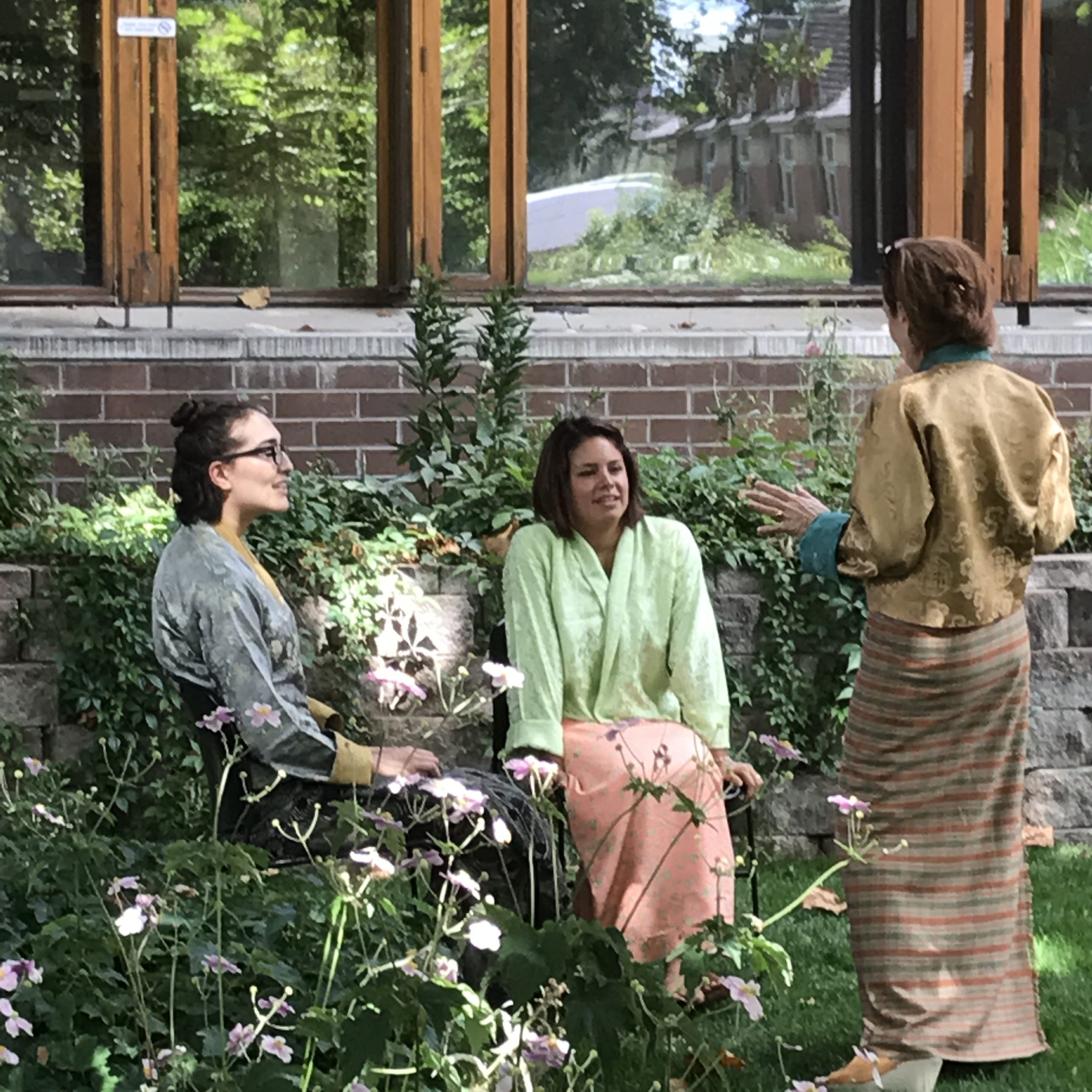
Bhutan has received international acclaim for its commitment to the maintenance of its biodiversity. This has manifested in the decision to maintain at least 60% of the land area under forest cover for all time, to designate more than 40% of its territory as national parks, reserves and other protected areas, and most recently, to identify a further 9% of land area as biodiversity corridors linking the protected areas. All of Bhutan’s protected land is connected to one another through a vast network of biological corridors, allowing animals to migrate freely throughout the country.
The students of the Naropa Study Abroad Program in Bhutan spend five months living as ordinary students at one of the campuses of the Royal University of Bhutan, taking classes that range from Gross National Happiness to Climate Change, Buddhism, Education, Development Studies, Sustainability, and so much more.
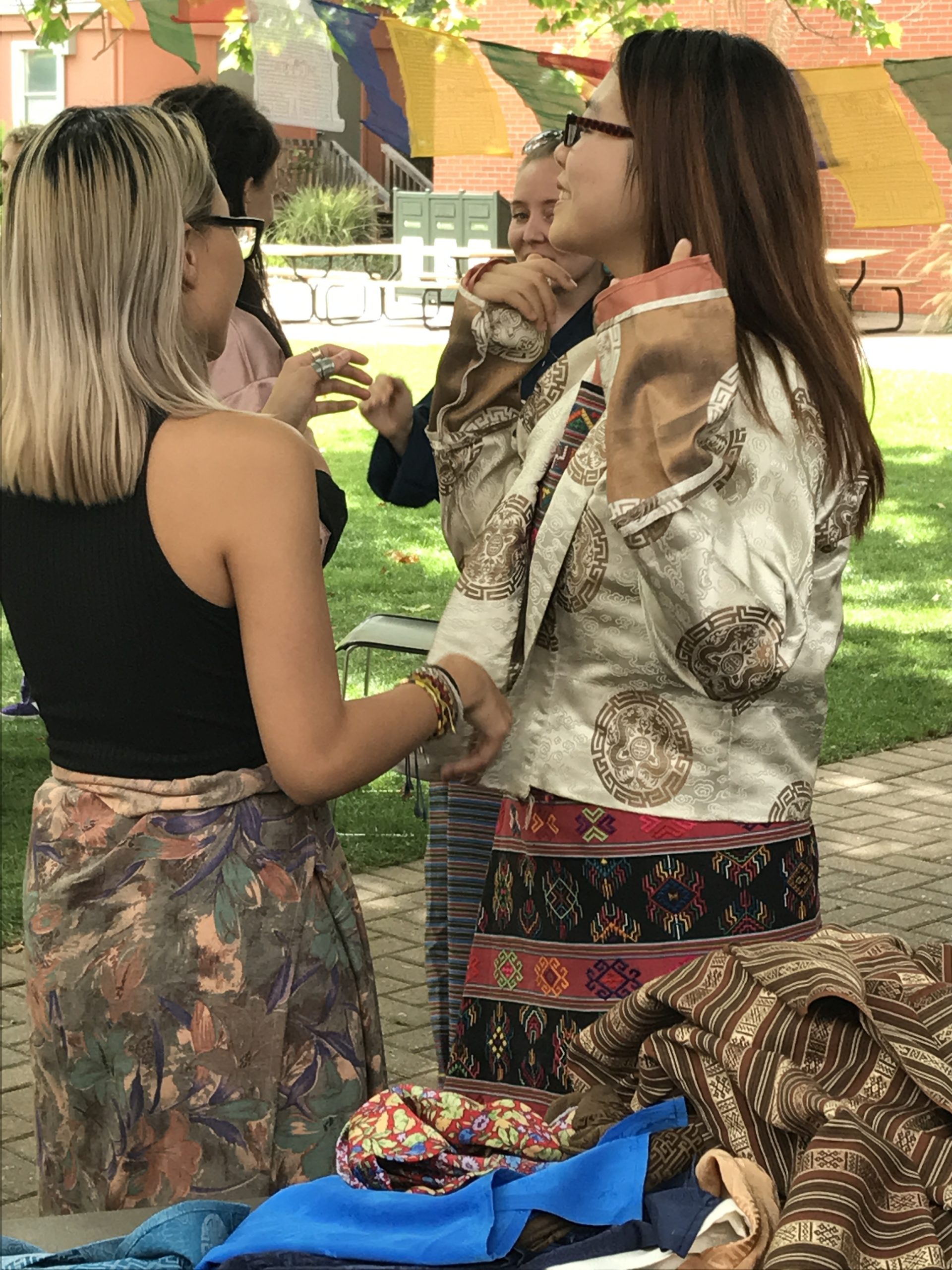
Bhutan aims to promote conservation as part of its plan to target Gross National Happiness. It is currently: “Carbon Negative” with its net zero greenhouse gas emissions because the small amount of pollution it creates is absorbed by the forests that cover most of the country. While the entire country collectively produces 2.2 million tons of carbon dioxide a year, the immense forest covering 72% of the country acts as a carbon sink, absorbing more than four million tons of carbon dioxide every year.
Wearing traditional clothing, living in the dorms, volunteering in the community, and learning to cook local food, students are immersed in daily life of campus and country. Students have focused their research learning on Traditional Medicine, Climate Change impacts, traditional and modern Arts, LGBTQ issues, Buddhism, Women’s rights, Modernization, the Impact of Media, Environmental Economics, and more. All our alumni say it changed who they are in deeper ways than they could have imagined, and that if you think you want to go, DO IT!
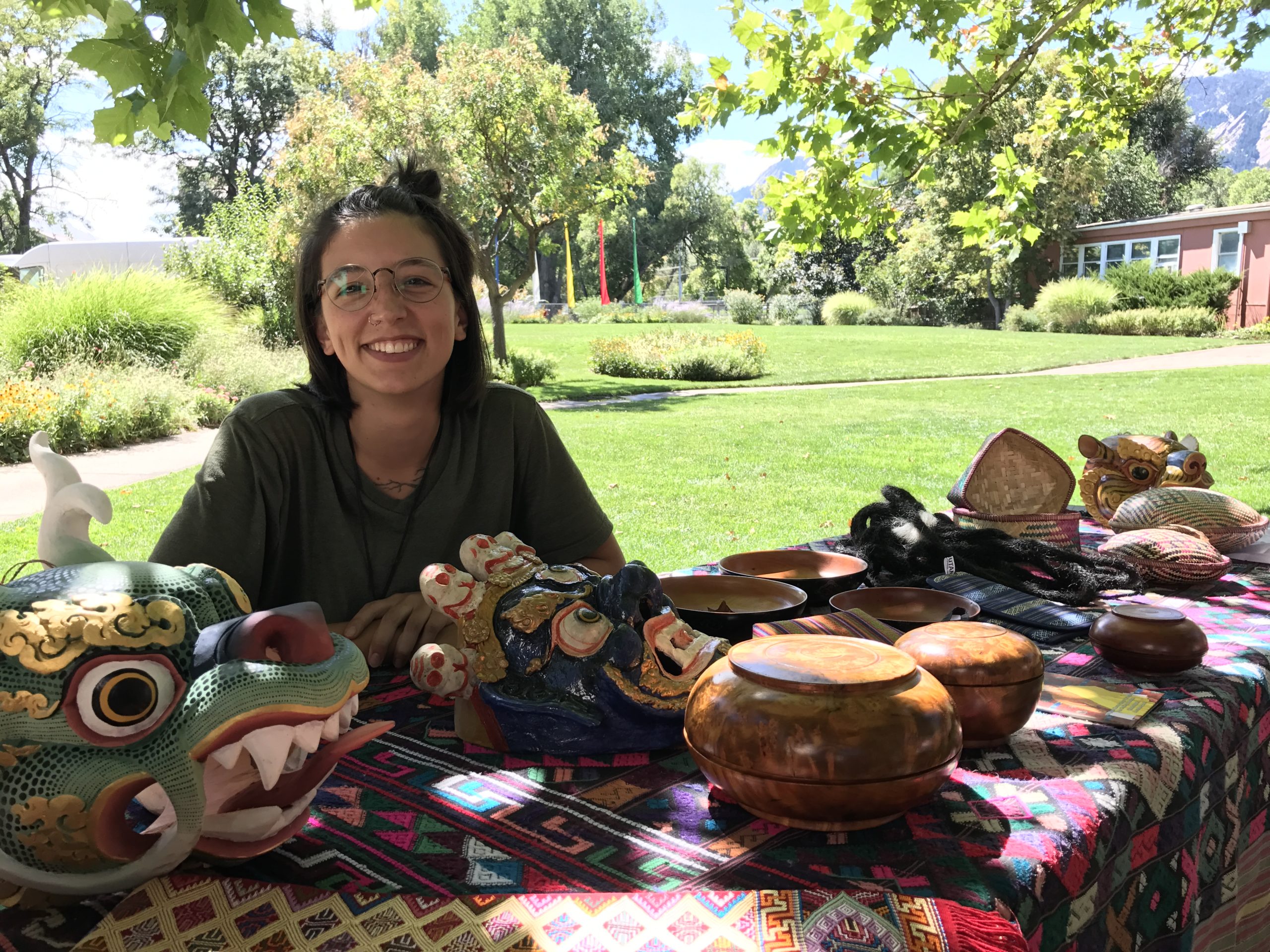
Jan Farias, Interdisciplinary major at Naropa, shared with us how she feels after returning from studying in Bhutan:
“Since returning from Bhutan, I’ve been so much more grateful for being alive. I don’t think I would have that feeling if I hadn’t gone there and experienced it. At first it seemed like a dream-like kind of thing, and there were challenges and difficulties, but it was just so worth it. It really changed my life for the better, and I have so much more gratitude now.”
Any qualified American college student can apply to the Naropa Study Abroad Program: contact: mdark@naropa.edu

